 January 1986 in “Journal of Steroid Biochemistry”
January 1986 in “Journal of Steroid Biochemistry” Women with severe acne, hirsutism, and androgenic alopecia often have higher levels of certain androgens, but the specific pattern can't be predicted just by looking at symptoms.
 48 citations,
January 2000 in “Hormone Research in Paediatrics”
48 citations,
January 2000 in “Hormone Research in Paediatrics” Cytokines and neuropeptides are key in controlling androgen levels, affecting skin and hair conditions.
[object Object]  1 citations,
December 2022 in “Biomedicines”
1 citations,
December 2022 in “Biomedicines” Middle-aged women with PCOS often continue to experience symptoms related to high androgen levels, like unwanted hair growth.
 October 2024 in “Journal of the Endocrine Society”
October 2024 in “Journal of the Endocrine Society” Leydig cell tumors can cause high testosterone and symptoms like hair loss in postmenopausal women, but surgery can improve these symptoms.

Oral Minoxidil could be a safe and effective alternative treatment for various non-androgenic alopecias.
 January 2018 in “Elsevier eBooks”
January 2018 in “Elsevier eBooks” The document concludes that alopecia has significant social and psychological effects, leading to a market for hair loss treatments.
 35 citations,
January 2014 in “Postepy Dermatologii I Alergologii”
35 citations,
January 2014 in “Postepy Dermatologii I Alergologii” DHT's role in hair loss is important, but measuring its level for diagnosis is questionable.
 10 citations,
June 2019 in “International Journal of Cosmetic Science”
10 citations,
June 2019 in “International Journal of Cosmetic Science” Some plant-based chemicals may help with hair growth, but more research is needed to confirm their effectiveness.
 November 2024 in “Clinical Cosmetic and Investigational Dermatology”
November 2024 in “Clinical Cosmetic and Investigational Dermatology” Rosemary oil may effectively treat hair loss with fewer side effects, but more research is needed.
 36 citations,
February 2011 in “Fertility and Sterility”
36 citations,
February 2011 in “Fertility and Sterility” Finasteride use may cause sperm damage and infertility, stopping it can improve sperm health.
 October 2024 in “Journal of the Endocrine Society”
October 2024 in “Journal of the Endocrine Society” Leydig cell tumors can cause high testosterone and symptoms in postmenopausal women, and removing them improves symptoms.
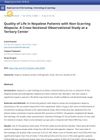 September 2022 in “Nepal journal of dermatology, venereology & leprology”
September 2022 in “Nepal journal of dermatology, venereology & leprology” Nepalese patients with hair loss, especially women and those with androgenetic alopecia, experience a significant decrease in quality of life.
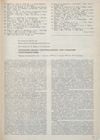 January 1993 in “Проблемы Эндокринологии”
January 1993 in “Проблемы Эндокринологии” Spironolactone effectively reduces symptoms of hyperandrogenism but has some side effects.
11 citations,
December 2021 in “Journal of Ginseng Research/Journal of ginseng research” Red ginseng oil is believed to have various health benefits and is safe, but more research is needed to fully understand how it works.
 1 citations,
October 2013 in “Actas Dermo-Sifiliográficas”
1 citations,
October 2013 in “Actas Dermo-Sifiliográficas” Customized medications made through compounding can be beneficial for various skin conditions but require careful regulation and collaboration between doctors and pharmacists.
 16 citations,
April 2017 in “Journal of Cosmetic Dermatology”
16 citations,
April 2017 in “Journal of Cosmetic Dermatology” Ficus carica leaf extract may help treat skin disorders by reducing inflammation and androgen effects in skin cells.
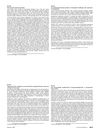 7 citations,
January 2011 in “Journal of The American Academy of Dermatology”
7 citations,
January 2011 in “Journal of The American Academy of Dermatology” Most women with hyperandrogenism first show acne, and skin conditions like hirsutism and acanthosis nigricans are good indicators of the condition.
 1 citations,
January 2018 in “Journal of Gynecologic Surgery”
1 citations,
January 2018 in “Journal of Gynecologic Surgery” Removing both ovaries can treat increased testosterone and related symptoms in postmenopausal women with ovarian hyperthecosis.
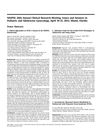 March 2012 in “Journal of Pediatric and Adolescent Gynecology”
March 2012 in “Journal of Pediatric and Adolescent Gynecology” Androgen levels do not determine the type of PCOS symptoms in young females.
 January 1983 in “Elsevier eBooks”
January 1983 in “Elsevier eBooks” Cyproterone acetate is used to treat conditions like prostate cancer, early puberty, excessive sexual drive, and female androgenization by affecting androgen functions and suppressing certain hormones.
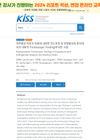 November 2016 in “대한피부과학회지”
November 2016 in “대한피부과학회지” The document's conclusion cannot be summarized as it is not provided in a language I can understand.
[object Object]  14 citations,
September 2020 in “Clinical, cosmetic and investigational dermatology”
14 citations,
September 2020 in “Clinical, cosmetic and investigational dermatology” The hair serum significantly improved hair growth and reduced hair fall without causing any skin issues.
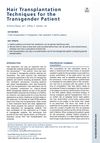 14 citations,
March 2019 in “Facial Plastic Surgery Clinics of North America”
14 citations,
March 2019 in “Facial Plastic Surgery Clinics of North America” Hair transplantation can help transgender patients affirm their gender identity.
 3 citations,
July 1997 in “Current problems in dermatology”
3 citations,
July 1997 in “Current problems in dermatology” Hair restoration surgery has evolved over time, with a focus on natural-looking results and managing patient expectations, while also considering potential complications and the lifelong progression of male pattern baldness.

The document concludes that diagnosing female hair loss requires careful examination, with treatments varying by condition and psychological support often necessary.
 24 citations,
January 2015 in “Evidence-based Complementary and Alternative Medicine”
24 citations,
January 2015 in “Evidence-based Complementary and Alternative Medicine” Polygonum multiflorum can promote hair growth when taken orally or applied topically.
 21 citations,
October 2011 in “British Journal of Dermatology”
21 citations,
October 2011 in “British Journal of Dermatology” Testosterone therapy helped 63% of androgen-deficient women grow scalp hair, but more research is needed.
 15 citations,
January 2016 in “Przeglad Menopauzalny”
15 citations,
January 2016 in “Przeglad Menopauzalny” Eating a balanced diet with specific nutrients is important for menopausal women to manage hair loss.
December 2024 in “International Journal of Scientific Reports” The plant-based hair serum is a promising and safe alternative to minoxidil for hair regrowth.
 September 1997 in “JEADV. Journal of the European Academy of Dermatology and Venereology/Journal of the European Academy of Dermatology and Venereology”
September 1997 in “JEADV. Journal of the European Academy of Dermatology and Venereology/Journal of the European Academy of Dermatology and Venereology” The document concludes that treatments like oral anti-androgens, minoxidil, and topical spironolactone can be effective for hair loss in men and women.



























